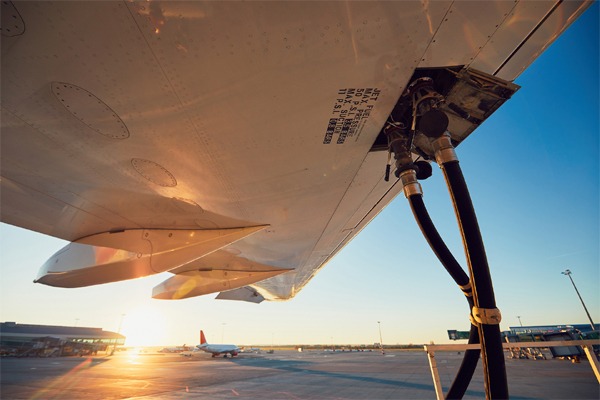
Sofia Cabrera and Wesley Monteiro, Argus Media
BOGOTA
EnergiesNet.com 09 12 2024
In a recent interview with S&P Global Commodity Insights, Agustín Torroba, International Specialist in Biofuels and Renewable Energies for the Inter-American Institute for Cooperation on Agriculture (IICA) and Executive Secretary of the Coalición Panamericana de Biocombustibles Líquidos, provided a comprehensive overview of the challenges and opportunities facing the sustainable aviation fuel (SAF) industry in Latin America.
He said the primary barrier to development was the absence of consistent sustainability criteria, which could lead to the emergence of multiple price markers that undermine competitiveness, and added that for the biofuels industry to thrive, it is essential to establish homogeneous sustainability standards.
“The two key factors are scaling up the industry and standardizing it with sustainability criteria,” Torroba said. Without a unified framework, regions like Europe may develop their own, potentially more expensive, price markers for raw materials, putting Latin American producers at a disadvantage, he explained.
The biofuels industry in the Americas is already significant, producing over 80% of the world’s ethanol and nearly 40% of its biodiesel, thanks to the continent’s abundant and efficient raw materials. Torroba noted that this dominance is supported by well-established public policies and regulations that align with broader climate objectives and energy security goals. For instance, he pointed out the notable shift in the United States from subsidizing oil to supporting renewable energy, a model that countries like Argentina are beginning to adopt.
Torroba highlighted the importance of aligning public policies with specific national goals, noting that Brazil is making strides with its “Fuels of the Future” bill, which aims to reduce greenhouse gas emissions in aviation. He expressed optimism that new regulations in Southern Cone countries could spur significant progress in the region, but he cautioned that there is a notable gap in knowledge among employers, regulators, and policymakers.
He further elaborated on the diverse raw materials available for biofuel production across Latin America. Corn has been the primary crop for biofuels in temperate climates, while tropical regions rely heavily on sugarcane and palm oil. “Argentina supplies 55% of the world’s soybean oil, and Brazil is increasingly focusing on corn for ethanol production,” Torroba explained. He emphasized that while there is a wealth of resources, the challenge lies in ensuring that these materials are utilized efficiently and sustainably.
A critical point raised by Torroba is the need for a single standard to enhance competitiveness. He warned that without such a framework, different criteria for SAF could lead to additional price markers in the region, complicating the market landscape. “We should certify new raw materials once and for all to save time and resources, ensuring we produce the same type of SAF for everyone,” he remarked.
The discussion also touched on the technological advancements necessary for scaling up SAF production. Torroba noted that while current production levels are insufficient to meet future demands, innovations in raw material use and production methods could drive the sector forward. He mentioned that CO₂ recovery is emerging as a trend, with several plants now capturing CO₂ to enhance product value.
Financing is another crucial aspect of the biofuel industry. Torroba highlighted the growing interest in self-financing through partnerships between major agroindustry players and global companies. He noted that while traditional banking is one option, off-take agreements are being made between plants that haven’t yet started construction and airlines, indicating a shift in how financing is approached in the sector.
Torroba also addressed the market dynamics of the biofuel industry in Latin America. While the region primarily focuses on domestic markets, Argentina’s biodiesel sector has a strong export profile, historically shipping up to 50% of its production. Brazil, despite producing significant volumes of ethanol, typically exports only a small fraction, although recent policies may redirect this volume to the domestic market.
As the conversation shifted toward the future, Torroba expressed optimism about the potential for SAF to become a highly valued product, similar to the recognition gained by lighter distilled products over time. He noted that the commitment to decarbonizing aviation is strong, and SAF is viewed as a vital component of this effort.
“Decarbonization cannot be achieved without SAF,” he stated, underscoring the urgency of addressing the challenges facing the industry.
In conclusion, Torroba believes that the key to advancing the SAF industry in Latin America lies in addressing sustainability criteria, scaling production, and embracing technological innovations. As the sector evolves, it will be essential to ensure that the diverse raw materials available across the continent are utilized effectively to meet the growing demand for sustainable fuels. With the right policies and collaborative efforts, Latin America has the potential to become a leader in the global SAF market.
argusmedia.com 09 12 2024












